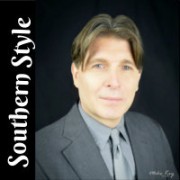Reaching and creating goals
Reaching lifetime goals often means it is time to reformulate your life and create new goals. As time passes, these goals seem to race by like fence posts but each one is a marker I look on fondly. I reached a career goal in 1993 that I had pursued since I was a little child.
Since the first time I watched Lester Flatt and Earl Scruggs sing “Little Girl of Mine In Tennessee” to “Granny” and “Uncle Jed” on “The Beverly Hillbillies;” since the first time I saw Wayne Newton play a down home country boy who could really saw the fiddle; or since the first time I watched Doug Dillard and all the Dillards entertain “Sheriff Andy Taylor” as “The Darlings” on the “Andy Griffith Show” with his up tempo banjo tunes; I dreamed of walking on network television to pick and grin.
I always figured that such national exposure for a young boy from Georgia had to come through music. There were just not that many other avenues at that time. So I worked and studied to improve my music, working to create and market our youth group, The Peachtree Pickers®, by working flea markets, churches and schools. We began competing at fiddler’s conventions and then moved up to entertaining larger and larger audiences at bluegrass festivals and fairs. The support of my late parents Pearl and Floyd Franks and those of the other group members helped to move our joint goals forward. We reached network cable in its infancy with a children’s show called “The Country Kids TV Series,” essentially a children’s “Hee Haw” which aired in the United States and abroad. Our growth would eventually lead us to performances for the Grand Old Opry ® and some acceptance by the more mainstream music industry.
In 1987, members of our youth act decided to go their separate ways, partially due to new college obligations. I was at a new point in my life, trying to decide what is next. I had not yet reached my childhood goal, but without a group, which was still the foundation of bluegrass and southern gospel music at that time, I did not know what my next step would be. I decided to make some solo appearances pulling together musicians when needed and continued appearing with other acts such as The Marksmen Quartet and Doodle and the Golden River Grass.
I began work at the Atlanta-based MBM records in 1987 helping to guide the careers of several artists signed with the label while still performing every opportunity I had. In 1988, the label changed hands and my job was eliminated. So, once again, I found myself searching. While I had enjoyed doing some minor acting in school, I decided in order to reach my television goal, I would have to begin a more intensive study of acting and take any opportunity, which were not many at the time, I could to get to be on screen in Georgia.
But God seemed to immediately open the doors, giving me opportunity after opportunity. The music talents God gave me seemed to put me where I needed to be. It would not be music that landed me my role as “Officer Randy Goode” on “In the Heat of the Night,” but it would be the many friends I developed from years of touring and recording that would share their exuberance about my presence on the show. After countless requests from those who cared about my music asking for me to perform on the show, Carroll O’Connor wrote a uniquely designed scene in an episode entitled “Random’s Child” which would set up a reason and purpose for “Officer Randy” to be pickin’ and grinnin’ just to frustrate the bad guys in that episode. One of those bad guys was Robert O’Reilly, “Gowron,” leader of the Klingons, from “Star Trek, Deep Space Nine.” I bet that is the only time in my life I will get to aggravate a Klingon.
Anyway, Carroll wrote a little piece entitled the “Sparta Blues” for actor Thomas Byrd and I to perform at the Sparta Police impound yard when the bad guys came to claim their car.
I have always jokingly called it my biggest hit since millions saw and heard it on CBS and millions more around the world have heard it since. I’ve often wondered what it sounded like when translated into Chinese or Italian. Recently, one of our Italian fans actually sent me some Italian performances, they were interesting. I didn’t know I spoke Italian so well.
It took years but the childhood dream was reached, and the goal I had chased for years was accomplished.
Then I had to decide what was next. Life is a constant re-evaluation of where you are and where you are going. We can’t just simply drift or what service will that be to God and our fellow man? He has a purpose for everyone’s life. It is up to us to make His vision for us happen. He will open the doors; we must simply study and be prepared to walk through. But at the same time, as we walk with the confidence He gave us we must always be mindful of whether what we are reaching for is His will or one we have created. Only time will tell.




